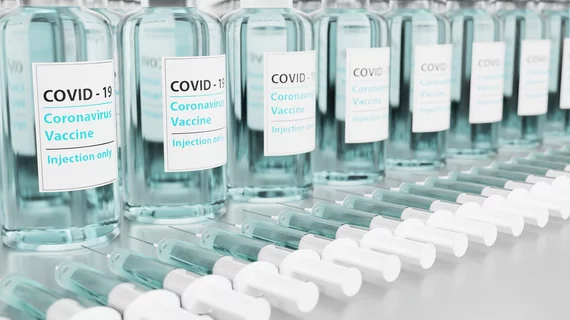CT technologist organizes protest against hospital’s vaccine, testing requirements
A CT technologist working at one New York Hospital says getting vaccinated against COVID-19 should be a personal choice, and he’s been leading a protest against employer-directed vaccine and testing requirements.
On Aug. 16, Staten Island University Hospital, which operates under Northwell Health, began mandating employees be vaccinated or undergo weekly testing, CNN reported Monday. But technologist John Matland, along with nearly 100 others, gathered last week to protest the new rules.
"For me, it's personal choice," Matland said to CNN. “This needs a lot more time and a lot more studying and we're putting it out on a scale that's worldwide, and that to me, it's not a wise decision," he added.
In the U.S., vaccines have been tested in trials for more than a year, and more than 200 million Americans have now received at least one dose. Meanwhile, on Monday, Aug. 23, the U.S. Food and Drug Administration granted full approval to the Pfizer/BioNTech vaccine.
Matland was suspended without pay on Aug. 18 and says he and others are prepared to lose their jobs over this issue. He also says four of six personnel in the hospital’s radiology department are unvaccinated, CNN reported.
"[Staten Island University Hospital] continues to respect people's right to free speech and to have their voices heard in a peaceful and civil manner," according to a statement on the matter. "However, the safety of our patients and staff remains paramount."
Read the full story below.

